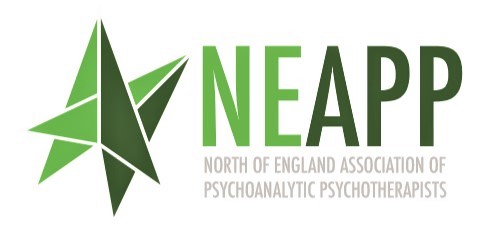
bpf North – Psychoanalytic & Psychodynamic Psychotherapy Training
Train to become a psychoanalytic or psychodynamic psychotherapist in the North East of England (Newcastle upon Tyne). We anticipate that modified entry will be available to qualified practitioners looking to retrain.
Location: Monthly Saturday study days in Newcastle upon Tyne, with some seminars Online.
bpf North will also be launching a new Foundation Course in Newcastle in September 2025.
Applications for October 2025 are now open
See ‘How to apply’
Watch the bpf North Virtual Open Day
Next intake: October 2025
- About the training
- History of the training
- Course structure
- Course Fees
- Entry requirements
- Resources
- How to apply
- Contact us
bpf North’s Psychoanalytic Psychotherapy Training offers a pathway to becoming a psychoanalytic or psychodynamic psychotherapist. This training is accredited by the British Psychoanalytic Council (BPC). This part-time training includes a combination of in-person and online teaching. The structure is designed to fit around current work commitments.
Trainees can apply to take psychoanalytic pathway, which will prepare them to work with patients three-times-per-week, or the psychodynamic pathway, which will prepare them for once-per-week work with patients.
Psychoanalytic/psychodynamic psychotherapy is based upon psychoanalytic theory and practice, and derives from knowledge of the unconscious processes that influence the mental life of the individual. Psychoanalytic psychotherapy utilises this knowledge to promote psychological development and to treat and prevent mental suffering, illness and dysfunction in individuals, groups and organisations.
Course graduates may expect to use their professional training and qualification as the basis for both autonomous independent practice and a career in the NHS.
Attend our Virtual Open Day to watch a presentation about this course.

Formerly run by the North of England Association of Psychoanalytic Psychotherapists (NEAPP), this training was established in 1992. It was the first training in England outside London to be accredited by the British Psychoanalytic Council (BPC).
In 2024, NEAPP joined the British Psychotherapy Foundation.

This part-time training includes a combination of in-person and online teaching. The structure is designed to fit around current work commitments.
We intend to teach this course on Saturday study days in Newcastle upon Tyne (once per month), alongside online seminars. This will make the training more accessible for trainees in surrounding cities in the North of England, such as Leeds, Manchester, Bradford, Liverpool, and Sheffield. This structure also makes training more feasible for those who live in some areas of Scotland, such as Edinburgh and the surrounding areas.
Training as a Psychoanalytic Psychotherapist
On the psychoanalytic psychotherapy pathway, the training takes a minimum of four years. This pathway is intended for those who wish to work with patients three times per week.
There are five core components to the course:
- Personal psychoanalytic psychotherapy or psychoanalysis at a minimum frequency of three times per week with an experienced psychoanalyst or psychoanalytic psychotherapist approved by the Training Committee. This should begin one year or more before the academic course, and continue at least until qualification for membership.
- Theoretical seminars.
- Clinical seminars.
- Observation of an infant with associated seminars.
- Supervised psychoanalytic psychotherapy treatment of two patients.
Training as a Psychodynamic Psychotherapist
On the psychodynamic psychotherapy pathway, the training takes a minimum of four years. This pathway is intended for those who wish to concentrate on working once or twice a week with patients.
There are five core components to this pathway:
- Personal psychoanalytic psychotherapy or psychoanalysis at a minimum frequency of once per week with an experienced psychoanalyst or psychoanalytic psychotherapist approved by the Training Committee. This should begin one year or more before the academic course, and continue at least until qualification for membership.
- Theoretical seminars.
- Clinical seminars.
- Observation of an infant with associated seminars.
- Supervised treatment of two patients in psychodynamic psychotherapy.
Modified Entry – Training as a Psychoanalytic Psychotherapist
For those who are already trained as Child and Adolescent Psychotherapists with the Association of Child Psychotherapy, or Adult Psychoanalytic/Psychodynamic Psychotherapists who are not registered with the BPC, we may be able to offer a modified entry to this training.
After discussion with the trainee, the Training Committee may relax the requirements for theoretical seminars to take account of study already undertaken in earlier training. Adult psychotherapists who have not attended Infant Observation Seminars will have to complete a year’s observation of a baby and write a paper on their experience.
Undertaking a clinical training in Psychoanalytic / Psychodynamic Psychotherapy represents a major personal investment in terms of time, money and individual development. We hope the following information will give you a sense of what training at the bpf might be like. We aim to keep fees as affordable as possible.
The 2025/2026 Course fees are as follows:
| Yr 1 | Yr 2 | Yr 3 | Yr 4 |
| £4,244 | £3,966 | £3,966 | £3,966 |
There is no additional cost for the Infant Observation component of this training.
If clinical work needs to continue beyond the four years, there is a reduction in the annual fee to £1,994.
Applicants will have been in psychoanalytic psychotherapy with a BPC-accredited practitioner for 1 year prior to the course start date. The psychotherapist you choose needs to be experienced (we normally ask that they have 5 years of work experience since they qualified). The therapy should be in-person.
We always recommend that you contact us before starting with a new therapist to check that the therapist will be suitable for this training. Please email us with any questions, and we will be able to offer guidance.
Those wishing to undertake the psychoanalytic pathway need to be in psychoanalytic psychotherapy three times per week, for at least one year prior to the course start date.
Those wishing to undertake the psychodynamic pathway need to be in psychoanalytic psychotherapy once per week, for at least one year prior to the course start date.
It is usually expected that applicants will have completed a foundation course in psychoanalytic/psychodynamic theory prior to starting this training. Applicants should also have voluntary or work experience in a listening role.
Resources
Blogs
How to become a psychotherapist in the UK – The British Psychotherapy Foundation
My Journey as a Black Trainee in Psychodynamic Psychotherapy – The British Psychotherapy Foundation
How Couples Psychotherapy Can Transform Relationships – The British Psychotherapy Foundation
Why become a psychotherapist? (part I)
Why become a psychotherapist? (part II)
Videos
What’s it like to be a psychotherapist? Psychoanalytic psychotherapist (youtube.com)
What’s it like to be a psychotherapist? Child and Adolescent Psychotherapist (youtube.com)
What’s it like to be a psychotherapist? Jungian Analyst (youtube.com)
Applications for this training are now open, and the next intake for the course is October 2025.
To start the application process, please first complete this questionnaire and return it to: nppt@bpf-psychotherapy.org.uk
If you have any questions about this training, please email us at: nppt@bpf-psychotherapy.org.uk
It has been wonderful to have studied at the bpf, it has changed so many perspectives in my life and I truly cherish this rich experience.”
Catia, bpf Student
Simply, it exceeded all my expectations, and sufficiently impressed and enthused me to consider a future career in psychotherapy. On a personal level it has changed me; something that has been accelerated by beginning my own personal analysis. I find myself thinking about non-verbal communications much more as a consequence of having attended the course.”
bpf Student
The ‘course has allowed to dip my toe into the analytic world and provided a broad overview of the analytic landscape. It has enhanced my understanding of psychoanalytic ideas and I’ve particularly benefited from speaking to experienced clinicians. The discussion groups in particular have been useful to clarify my own ideas and get a different perspective from others. Overall, it has helped me to determine if I would like to pursue work in this field.”
bpf Student

Upcoming Open Days
London (In Person):
Online
New Courses Starting in 2025
Online:
- Psychodynamic and Jungian Theory for Qualified Practitioners (Taught Online)
bpf North:
- Foundation Course (Taught in Newcastle)
- Psychoanalytic & Psychodynamic Psychotherapy Training (Taught in Newcastle & Online)
